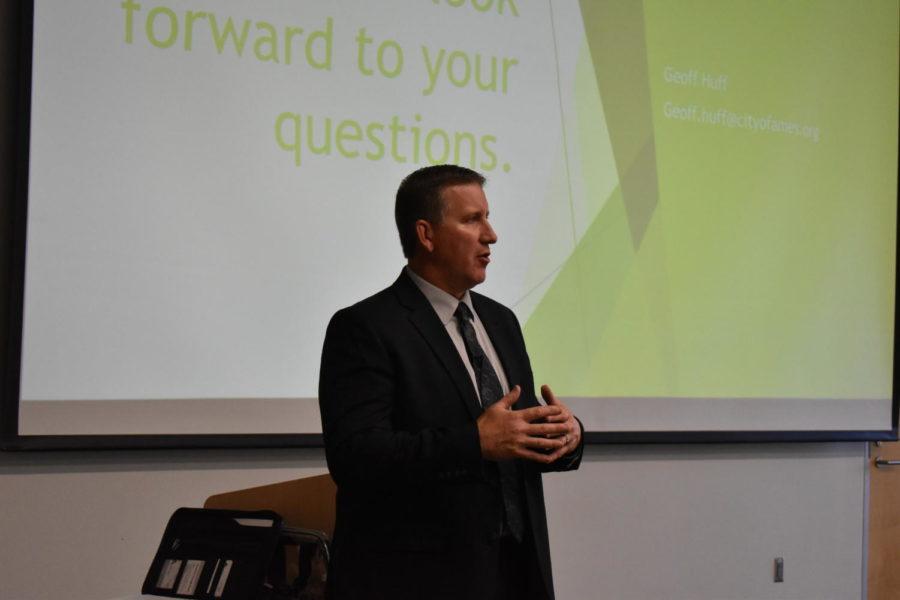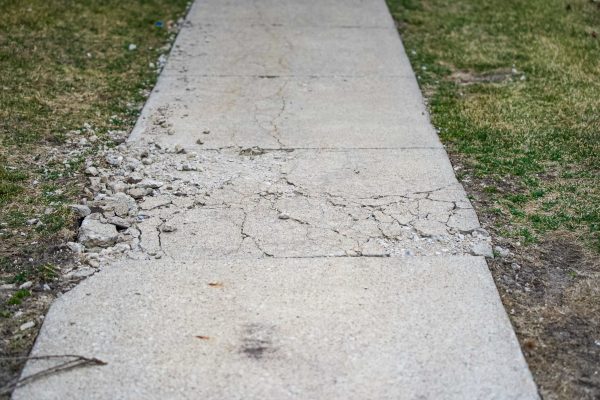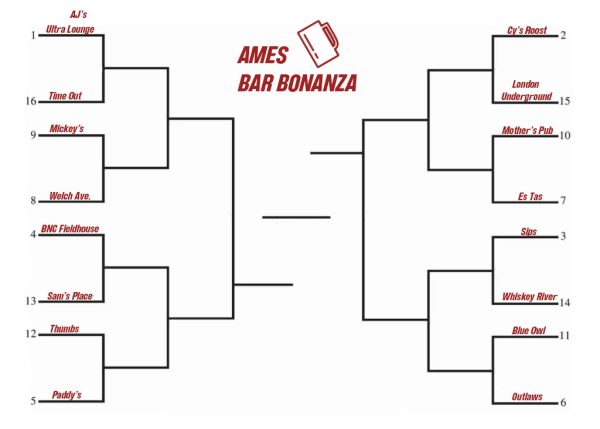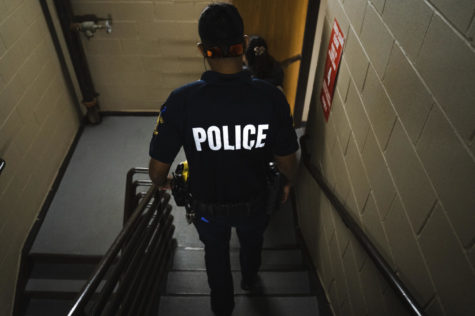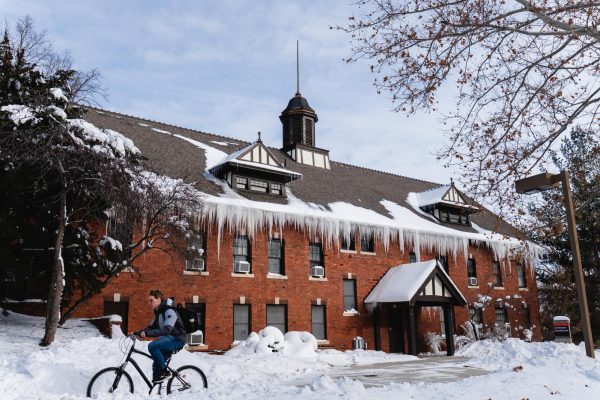Interim Police Chief Geoff Huff speaks on diversity and transparency
Focusing on what’s been done during his time as interim police chief and what he hopes to accomplish, Huff presented his goals and plans to a crowd of 50 on June 7 at the Ames Public Library.
June 7, 2021
The search for a new Ames police chief is in the home stretch as one of the two finalists answers questions about diversity, accountability and transparency during Monday’s presentation.
Geoff Huff, of the Ames Police Department, is one of the two candidates for the position, and John Justiniano of Winchester, California, is the second candidate.
Huff worked with the department since 1994, and in that time his titles included police officer, corporal, sergeant, lieutenant and officer commander.
Since August 2020, after the retirement of former Ames Police Chief Chuck Cychosz, he’s been the interim police chief.
Focusing on what’s been done during his time as interim police chief and what he hopes to accomplish, Huff presented his goals and plans to a crowd of 50 on Monday afternoon at the Ames Public Library.
One of the projects Huff is working on is having Ames Police Department policies be assessed through a third-party company called Lexipol.
“We have hired the company to help us make sure that all of our policies are up to date, they’re peer-reviewed, and legal has looked at them,” he said. “We’re about 90 percent in our rollout on those policies and officers can actually take their phone out of the pocket for any policy instead of having to hold a piece of paper.”
Huff also worked to improve the radio system, as well as converting department vehicles to hybrid as a way to meet the Ames City Council’s goal of sustainability. Looking ahead, Huff said his vision for the department is training officers on procedural justice which includes universal fairness.
“The law might be black and white but police officers are operating in the gray (area) all the time, we have to look at the totality of circumstances and figure out what is the best way to solve a problem,” Huff said.
To which he offers transparency. During the question and answer session, a community member posed the question on how Huff plans to ensure transparency and accountability through data collection.
“What is your game plan to ensure that everybody in the community will be able to learn about and be able to hold you accountable for what you’re doing through data sharing?” the community member asked Huff at the public presentation.
Going off of that, Amy Erica Smith, a resident of Ames since 2012 and associate professor of political science, posed the question of how that data will be available and who will be responsible for dispersing that information.
“That’s what we’re working on now: trying to figure out how we take that data, what is the best way to provide it to the public?” Huff said in response to Smith’s question. “And then once it’s available, I mean, it’s available to anyone, you can do what you want with it.”
For data collection, Huff said he plans to share data, such as arrests or traffic stops, through the police department’s website and the Ames Public Library. He also said he plans on being present in the community to answer questions and speak with people.
Smith also questioned if the department will have other means of diversity training — if Huff is selected as the police chief.
“Unfortunately, a lot of academic research suggests that three-hour courses on diversity training don’t actually do that well in preventing [racial bias and violence within police],” Smith said. “It’s great to have them, but it’s the first step. What’s needed are institutions, practices and processes that institutionalize a culture of equity within a department, and that put in place penalties from the beginning to cut things off before they happen.”
Huff said all of the department’s policies “speak to fairness,” but he said he thinks the most important aspect is to go out into the public — especially the underserved — and build relationships.
“When you start to get to know people, that’s where the magic happens. … sometimes sitting in a classroom for two hours doesn’t change a whole lot, but it’s really hard to hate somebody that you get to know, at least, that’s been my experience,” he said. “We’re gonna make sure we get our officers and our command staff out in the public as much as we can, conversing with diverse populations, so that we all have a better understanding of each other.”
People also mentioned that underserved communities tend to be over-policed, so they asked how Huff plans to address racial profiling and bias within the department and resolve that tension in Ames.
“I think that we have to focus on the behaviors and not the characteristics of the people, and that’s what we work hard to do,” Huff said. “That’s part of our policy, it’s part of what procedural justice is all about. You know, the community has to say what things are priorities for their police department. And so, we try and listen in by saying, if certain things are just not a priority, we’re going to deprioritize them. … and so we try and continually listen to our [community] to determine which things are a priority.”
Justiniano, the second and final candidate for police chief, will present at 4:30 p.m. June 14 in Farwell T. Brown Auditorium in the Ames Public Library.

